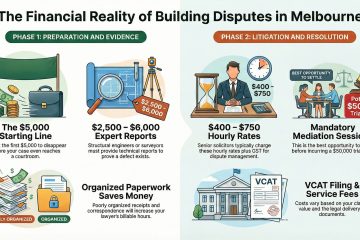New York residents with simple wills can name beneficiaries for various assets, including savings and retirement accounts as well as real property (such as their family home).
Estate planning helps ensure that your wishes will be carried out after you die. A qualified estate lawyer can help you draft a will and other important documents, including Powers of Attorney and advance directives.
Creating a Will
As the first step of making your will, the initial decision must be who should receive your property. This involves designating beneficiaries for all assets including cash, personal possessions and real estate. Additionally, it is wise to name alternate or contingent beneficiaries in case your primary beneficiary passes away, becomes incapacitated or declines the inheritance. It is also crucial that you consider what happens with joint assets owned with your spouse such as bank accounts or life insurance policies.
Once you have determined who will inherit what, it’s time to create your will. You have two options for writing it: either write it yourself or hire an attorney who specializes in estate planning to prepare a document specifically tailored for you and your unique circumstances. Whichever route you take, be sure to consult an estate planning expert in order to make sure that it conforms with all legal requirements in both state and country.
Complex estates require legal advice in order to reduce or avoid estate taxes, draft trusts for beneficiaries, designate guardianship of minor children and assist with probate proceedings. But simple Wills covering small assets uncontested by family and friends may allow you to make one on your own without professional help.
Selecting an executor is another essential element of creating your will. Your executor is charged with overseeing that your wishes expressed in your Will are carried out after your death and should come from among your family, friends or close colleagues – typically your spouse is elected as executor; however other options such as adult children may also be considered as suitable choices.
Once your will is completed, it’s essential that it remains somewhere safe so it can easily be located after your death. In addition, you should revisit it at regular intervals – especially after major life changes and as part of regular reviews every two or three years as a general guideline.
Wills can be sensitive topics to discuss, yet one of the most essential things you can do for both yourself and your loved ones. If you need assistance creating one or ensuring it satisfies all legal requirements, use FindLaw to locate a qualified attorney near you.
Creating a Trust
Trusts are legal documents designed to protect your family after your death, providing for them in ways you couldn’t during life. A well-drafted trust can reduce or avoid estate taxes, provide for guardians for minor children, protect beneficiaries from creditors and divorce, simplify administration by dispensing with bond requirements – and help achieve other important goals such as making sure creditors cannot reach them. Using wills lawyers as your partner, they can assist with creating one tailored specifically to meet your goals.
First, decide which properties you wish to put into the trust. These could include cash, real estate, investments, stock certificates or business interests. Next, think about how you’d like these assets distributed; whether that means specifying who gets what (e.g. Beth gets antique jewelry collection and John inherits his grandfather’s stamp collection), or setting specific goals like paying your child’s college tuition or helping your spouse purchase their home.
Next, gather all the documents necessary for transferring these assets to the trust. For example, if you want to add your house as part of the trust, it is necessary to change both deed and title documents as well as collect relevant paperwork like account information and stock certificates for every asset held within. If you need help getting started or transferring assets between accounts, professional trustees offer invaluable services which can safeguard family relationships while maintaining continuity in care.
Finally, identify your beneficiaries. They could include family, friends or charitable organizations – remember that retirement benefits and life insurance policies typically already have beneficiary designations in place.
Once you’ve completed all the steps to establish your trust, it’s important to get it notarized to ensure it can fulfill its intended purposes. Your trustee can explain more details if there are restrictions placed upon accessing assets held within it – for instance waiting until reaching certain age or death of trustee before accessing them may be necessary.
Creating a Power of Attorney
Legal tools that will protect your wishes are an integral component of estate planning. With assistance from a lawyer, a power of attorney (POA) document that gives another person authority to make decisions on your behalf can be created; additionally a living will, which covers medical decisions can also be written up.
As part of creating a POA, the first step should be selecting your agent. Careful consideration must be given when making this important choice as they will be responsible for making financial and other key decisions on your behalf if you become incapacitated. Typically family members make good candidates; however, in certain situations a more appropriate choice might be an acquaintance or close friend that shares similar beliefs as yourself – in such instances naming an acquaintance/friend would likely prove more advantageous.
Next, it is necessary to establish what powers are being granted to your agent and when they will take effect. Some states mandate whether your power of attorney is “durable”, meaning it continues in force even after you become incapacitated, or “springing”, whereby its provisions don’t take effect until incapacitating circumstances have arisen.
Last but not least, you must state your wishes clearly. This could include specific bequests such as jewelry and other valuable objects that will go directly to the beneficiaries after your death. Furthermore, including an explanation as to who should inherit these properties can help avoid family arguments over who gets what.
Once this step has been taken, the document can be signed and given to its intended parties. You may need it notarized or have someone testify as your witness; some states also impose additional requirements, such as signing before a notary public.
An estate planning attorney in New York can assist in creating your power of attorney and other documents such as living will and healthcare directive. If you prefer creating these documents yourself, an online service such as FreeWill provides an easy solution based on New York law that includes instructions for proper execution of documents created using their service.
Creating a Health Care Directive
An advance health care directive (also referred to as medical power of attorney or durable power of attorney for health care) is a legal mechanism used to express your wishes regarding treatment should you become seriously injured or ill and can’t make decisions yourself. Additionally, this document allows someone else to act as your agent or proxy and make decisions for you when needed. When creating one it’s essential that both you and the person making this document discuss any preferences that arise and sign the document to formalise it into law.
Preparing an advance directive varies by state, but generally includes considering what’s important to you, consulting family and friends, and becoming informed of end-of-life care options. Review your advance directives periodically–particularly after major life events like a serious illness diagnosis or significant decline in health–for further changes that might need to be made.
To create an advance directive, you will require a form specific to your state. A durable power of attorney for health care or “health care proxy” form may help. Along with designating an agent, this form typically specifies which medical treatments you would or wouldn’t like – for conditions like Alzheimer’s, cancer and Parkinson’s as well as CPR, blood transfusions or artificial nutrition and hydration (ANH).
Your living will can also serve as a health care proxy, giving your doctor and agent additional details of your end-of-life care preferences. A living will provides more specific details, such as whether or not you want artificial respiration systems in place during end of life care; or whether you would rather prefer natural death.
Documents are essential in order to avoid confusion or disagreement regarding your medical care, so provide copies to your doctor, agent and family members who might require them. Also store them safely so they are easily found when needed – remember to update these when anything changes, such as diagnosis or divorce.


